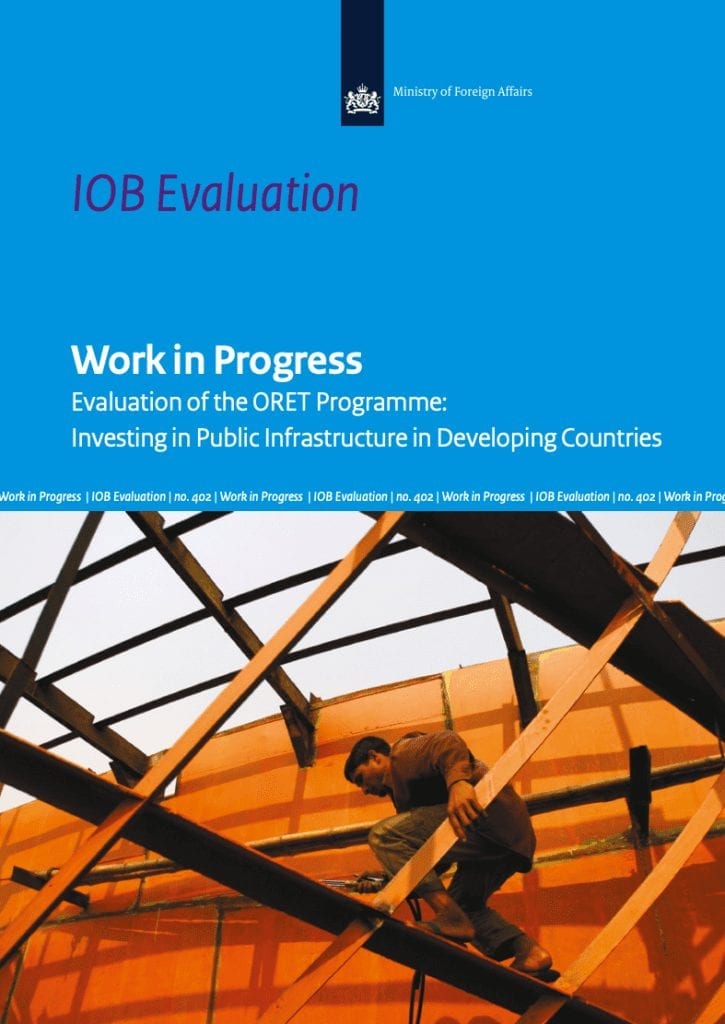
This evaluation assessed the extent to which the ORET programme reached its stated objectives and it accounted for ORET’s functioning in the period 2007-2012 and the (financial) resources used. It also aimed at learning lessons for other Dutch public infrastructure investment programs and private sector development policies in developing countries. The main research questionsof this evaluation focused on:
- its relevance and effectiveness to enhance sustainable economic development in recipient countries and success and failure factors to sustain public infrastructure investments;
- its function in mobilizing additional finance for socio-economic infrastructure and complementing other Dutch foreign policy instruments;
- its role to faciliate market access for Dutch companies and promote durable trade and/or investment relations;
- the efficiency of the programme’s management and supervision by the Ministry.
Because of data limitations and the relatively large number of ORET-transactions, this evaluation assessed the overall development contribution of ORET primarily on the basis of 13 case studies that consisted of 23 completed transactions. The 23 transactions were visited, researched and scored on various dimensions of the regular DAC evaluation criteria (Efficiency, Effectiveness, Impact, Relevance, Sustainability). The sample offered a cross-section of beneficary countries and sectors. Although the conclusions about outcomes and impact were only related to the transactions in the case studies,we felt confident that the conclusions were indicative for the outcomes of all completed transactions and the ORET programme as a whole.
Reports:
Work in Progress. Evaluation of the ORET Programme: Investing in Public Infrastructure in Developing Countries. IOB Evaluation No. 402. The Hague: Ministry of Foreign Affairs, Development Cooperation, Policy and Operations Evaluation Department. ISBN: 978-90-5328-447-6. July 2015.
Niek de Jong, Rafael del Cid, Vivian Guzmán and Otto Genee. El puerto que no debió construirse (The port that should not have been constructed). IOB Evaluation No. 402. ORET Evaluation 2007-2012 – Case study of Project “Champerico Fishery Port, Guatemala” (ORET transactions GT00017 and GT00018). Rotterdam: Erasmus School of Economics, Erasmus University Rotterdam. March 2015.
